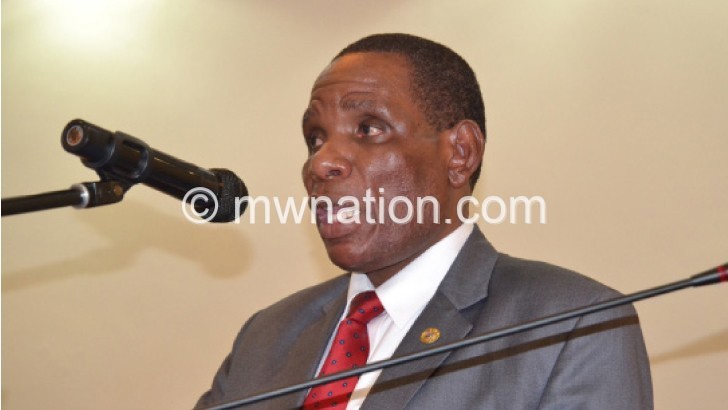2018: The year Fisp hurdles worsened
On the agriculture front, 2018 will be remembered for controversies that surrounded the 2018/19 Farm Input Subsidy Programme (Fisp).
The programme exposed existing lapses in the management of public projects and funds.
Delivering his budget statement in May 2018, Minister of Finance, Economic Planning and Development Goodall Gondwe announced that government had allocated K42 billion to Fisp in the 2018/19 agricultural season, targeting one million beneficiaries.

The number of beneficiaries in the current farming season was an increase from 900 000 in 2017.
Parliament approved the money to distribute 100 000 metric tonnes (MT) split between Urea and NPK fertilisers, 5 000MT of cereal seeds (maize, sorghum and rice) and 2 000MT of legume seeds (soya beans, beans, groundnuts, cowpeas and pigeon peas).
The increased number of beneficiaries gave hope to poor farmers who failed to access the subsidised farm inputs in previous years.
But between July and August, when Ministry of Agriculture, Irrigation and Water Development (MoAIWD) conducted a farming household update, an exercise aimed at matching and verifying names of beneficiaries, the results were different from the expectation.
Many villages complained that there was a decline in the number of beneficiaries compared to the 2017/18 growing season.
As a security measure to avoid dubious coupons hitting the market, government printed this year’s Fisp coupons in Dubai at an estimated cost of about $195 000 (about K141 million).
In early October, 44 companies were approved to supply seeds and fertiliser before Minister of Agriculture, Irrigation and Water Development Joseph Mwanamvekha officially launched the 2018/19 Fisp in Balaka on October 11.
During the launch of the programme at Mtaya ground in Balaka, Mwanamvekha warned chiefs and other stakeholders against theft and corruption, urging them to ensure that Fisp coupons are given to rightful beneficiaries.
“Each coupon has the beneficiary’s photo as it appears on the national ID to avoid situations whereby some coupons were being given to false recipients,” he said.
However, when the Fisp coupons distribution exercise started, the coupons had no photos of beneficiaries.
On November 6, MoAIWD suspended the distribution of coupons and suppliers coupon redemptions to “align, reconcile and consolidate the distribution processes in all the districts in tandem with the planned distribution figures”.
The suspension followed allegations that some beneficiaries were not from villages indicated on the beneficiary’s list while some beneficiaries were allegedly selling the coupons to vendors instead of buying inputs for their use.
Six days later, on November 12, the ministry lifted the suspension following findings of its investigations which indicated that there were no anomalies on the coupons distribution.
Eight days after the ministry said the exercise had no anomalies, Mwanamvekha, while delivering a ministerial statement on the implementation of the 2018/19 Fisp in Parliament on November 20, said during the suspension period, the ministry had detected over 3 000 ghost beneficiaries.
He said in Ntchisi District alone, 133 ghost villages were detected with 1 999 beneficiaries on the district council registry.
In Mangochi, the ministry found 813 ghost beneficiaries while Mchinji registered 235.
The ministry suspended some of the staff who were allegedly creating ghost beneficiaries. And coupons that were allocated to ghost villages were then redistributed to actual villages in the affected districts.
Said the minister: “They have been suspended and are not working elsewhere. We don’t want to transfer the problem. The matter has been referred to relevant authorities to deal with the issue.”
To gauge if the ministry had indeed resolved the Fisp hurdles, The Nation went to Makanjira in Mangochi following a tip-off that some vendors were selling coupons meant to benefit poor farmers. There, we were able to buy two Fisp fertiliser coupons, for Urea and for NPK at K6 500 each.
When asked about the source of the coupons, the businessperson claimed that he got them from some MoAIWD officials whose names he could not reveal.
The two coupons were later presented at a Smallholder Farmers Fertiliser Revolving Fund of Malawi (SFFRFM) depot at Sharpevale in Ntcheu and we were able to redeem the supplies after paying a top-up of K5 500 for Urea and K6 500 for NPK at the depot.
The transaction revealed three major problems, including how the broken Fisp management system had allowed ineligible people to benefit from the programme at the expense of the struggling taxpayer.
The second was how government was being defrauded. Capital Hill’s fixed rate for redeeming a 50 kilogramme (kg) bag of fertiliser is K15 000, meaning that the two coupons enabled a non-qualifying individual to have taxpayers pay K30 000 for his fertiliser. The farmer meets the difference between the commercial price at the supplier and the State’s subsidy.
The third problem exposed deficiencies in the beneficiary identification as players ignored the laid down systems.
MoAIWD spokesperson Hamilton Chimala said the ministry was not aware that some vendors were selling coupons. He also could not say what the ministry does with returned coupons as indicated by the Mangochi Dado.
Instead, he insisted that the 2018/19 Fisp was “very successful” compared to previous seasons.
Commenting on the issue, Farmers Union of Malawi president Alfred Kapichira Banda expressed anger over how government handles the 2018/19 Fisp and suggested that the programme should be abolished as it is benefiting politicians.
Some civil society organisations and legislators echoed Banda’s call for the abolishment of the programme.
In December 2018, police in Mchinji arrested an agro-dealer for allegedly misappropriating money for Demeter Agricultural Limited and being found in possession of 61 coupons bearing Chikwawa District serial numbers and indication that the programme indeed failed to benefit all the targeted beneficiaries.
Critics of the programme have pushed for an exit strategy and noted that the country is entangled in various cycle with billions of kwacha invested in Fisp and, at the end of the day, taxpayers fishing out more to feed millions of hungry mouth after the poor harvest. n





